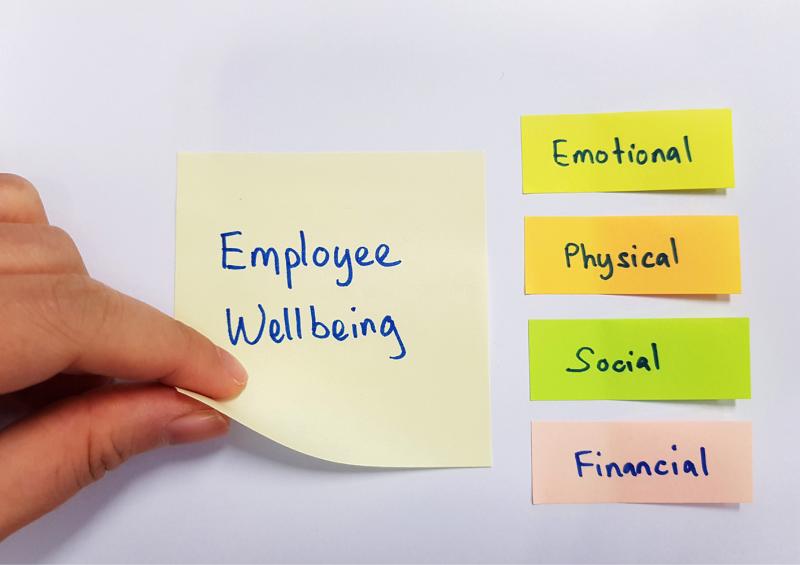Key points
- Organisational interventions refer to the planned efforts within an organisation to foster positive changes in employee (i.e., aged care staff member) wellbeing and work conditions.
- These interventions modify work context to reduce sources of stress within the workplace, thereby mitigating the risk and impact of burnout among aged care workers.
- This scoping review identified a range of organisational interventions such as to assess and implement strategies for stress reduction, job training, flexible schedules, and staff recognition initiatives.
- The research evidence also provided insights learned during and since the COVID-19 pandemic and suggests organisational interventions that may be useful in the event of future crises and pandemics.
Burnout is an individual reaction in response to high job demands and low job resources. [1] Individuals who are burnt out have high levels of emotional exhaustion, depersonalisation, and low levels of accomplishment. [1] Aged care workers are especially at risk in developing burnout due to the chronic interpersonal stressors of their work, which can negatively affect the quality of work performance. [2-4] Implementing suitable interventions, whether at the individual or organisational level, or through a combination of both, can mitigate burnout among aged care workers. [2] Personal interventions attempt to increase aged care worker’s psychological resources to cope with workplace stressors. [5] Organisational interventions focuses on changing the occupational context to reduce sources of stress within the workplace. [5] A combined intervention takes on both personal and organisational perspectives. [5] . A separate evidence theme was developed, which reported on personal interventions. There were no findings on combined interventions relative to staff burnout for aged care workers.
This evidence theme on organisational interventions to prevent or manage staff burnout is a summary of one of the key topics identified by a scoping review of the staff burnout research. If you need more specific or comprehensive information on this topic, try using our PubMed searches provided below.
The 2022 scoping review indicated six studies on organisational interventions to prevent or manage burnout in aged care workers. [6-11] The 2023 update found additional three studies that contributed to this theme. [12-14] Research studies on burnout propose a variety of effective actions that organisations can implement to protect and manage burnout among staff members. These include:
- Providing adequate job training opportunities [7, 10, 12] and learning resources [7, 8, 15] such as textbooks, policy and procedural manuals, and guidelines. [15]
- Providing staff with a voice to express concerns about care quality. [9]
- Improving work environment (organisational context). [6]
- Implementing community and government support initiatives, such as recognising staff as "healthcare heroes" and "health care warriors". [13]
One study reported that nursing staff working in small-scale living facilities had fewer physical demands and workloads. [11] However, there were no differences found in burnout symptoms when compared to other workplace environments, such as within hospitals. [11]
The following provides organisational intervention findings in relation to future crisis and pandemics, which were learnt at the time of COVID-19:
- Ensure clear direction and guidance from leaders and regulators. [14]
- Implement procedures for crisis situations through listening, consultation, and dialogue with multidisciplinary staff, recognising their knowledge and experience. [14]
- Grant greater staff autonomy in decision-making, particularly in crisis events. [14]
- Assess and implement personal strategies to reduce work stress.
- Seek and participate in relevant job training opportunities, utilising learning resources such as textbooks, policy manuals, and guidelines.
- Utilise opportunities to express concerns about care quality.
- Ensure clear direction and guidance from leaders and regulators.
- Implement crisis procedures involving listening, consultation, and dialogue with multidisciplinary staff, recognising their knowledge and experience.
- Provide greater autonomy to staff in decision-making processes, especially during crisis events.
- Aryankhesal A, Mohammadibakhsh R, Hamidi Y, Alidoost S, Behzadifar M, Sohrabi R, et al. Interventions on reducing burnout in physicians and nurses: A systematic review. Med. J. Islam. 2019;33:77.
- Zhang X-j, Song Y, Jiang T, Ding N, Shi T-y. Interventions to reduce burnout of physicians and nurses: An overview of systematic reviews and meta-analyses. Med. 2020;99(26).
- Low YS, Bhar S, Chen WS. Exploring the relationship between co-worker and supervisor support, self-confidence, coping skills and burnout in residential aged care staff. BMC Nurs. 2022;21(1):1-10.
- Maslach C, Leiter MP. Understanding the burnout experience: Recent research and its implications for psychiatry. World Psychiatry. 2016;15(2):103-111.
- Ahola K, Toppinen-Tanner S, Seppänen J. Interventions to alleviate burnout symptoms and to support return to work among employees with burnout: Systematic review and meta-analysis. Burn. Res. 2017;4:1-11.
- Chamberlain SA, Hoben M, Squires JE, Cummings GG, Norton P, Estabrooks CA. Who is (still) looking after mom and dad? Few improvements in care aides’ quality-of-work life. Can J Aging. 2019;38(1):35-50.
- Cooper C, Marston L, Barber J, Livingston D, Rapaport P, Higgs P, et al. Do care homes deliver person-centred care? A cross-sectional survey of staff-reported abusive and positive behaviours towards residents from the marque (managing agitation and raising quality of life) English National Care Home Survey. PLoS One. 2018;13(3):e0193399.
- Olley R. Hear me, see me, trust you–job burnout and disengagement of Australian aged care workers. Leadersh. Health Serv. 2022;36(1):111-124.
- Yamaguchi I. Mediating effects of upward communications on the relationship between team autonomy and burnout: A study of employees at care facilities in Japan. Int. J. Bus. Commun. 2019:2329488419829811.
- Yeatts DE, Seckin G, Shen Y, Thompson M, Auden D, Cready CM. Burnout among direct‐care workers in nursing homes: Influences of organisational, workplace, interpersonal and personal characteristics. J. Clin. Nurs. 2018;27(19-20):3652-3665.
- Zwakhalen SM, Hamers JP, van Rossum E, Ambergen T, Kempen GI, Verbeek H. Working in small-scale, homelike dementia care: Effects on staff burnout symptoms and job characteristics. A quasi-experimental, longitudinal study. J. Nurs. Res. 2018;23(2-3):109-122.
- Hardy M-S, Voyer P, Dallaire C, Morin D, Durand PJ, Kröger E, et al. Job satisfaction for caregivers and other employees in innovative long-term care homes for residents with cognitive problems. J. Gerontol. Nurs. 2023;49(10):36-43.
- Ghezeljeh TN, Shahrestanaki SK, Majdabadi kohne ZA, Fakhari E. Home care nurses’ perception of the challenges they faced during the Covid-19 pandemic: A qualitative study. BMC Nurs. 2022;21(1):314.
- Lev S, Dolberg P. “You killed the hospital, they have no place left”: The experience of nursing home multidisciplinary staff in israel during the Covid-19 pandemic. J. Aging Soc. Policy. 2022:1-21.
- Jones K, Schnitzler K, Borgstrom E. The implications of Covid‐19 on health and social care personnel in long‐term care facilities for older people: An international scoping review. Health Soc Care Community. 2022;30(6):e3493-e3506.
Connect to PubMed evidence
For more research and information on organisational interventions to prevent or manage staff burnout in aged care, visit our ‘one-click’ searches on PubMed:

